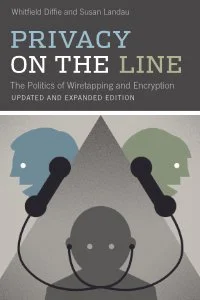By Anne McNamara
During the height of the Civil Rights movement, the Supreme Court in Terry v. Ohio crafted the policing power to stop and search an individual without a warrant, without probable cause, and if the officer possesses a reasonable suspicion of criminal activity. Thirty years later, in Whren v. United States, the Court willfully blinded itself to the subjective motivations of an officer who initiate a Terry stop, requiring only a claim of some lawful reason to initiate a stop to adhere to the Fourth Amendments protections. Despite overwhelming evidence that the Court’s Fourth Amendment jurisprudence disparately affects Black people, the Court continuously asserts that the Equal Protection Clause (EPC)—not the Fourth Amendment—is the proper constitutional avenue for relief from race-motivated policing. Even a defendant who successfully overcomes the EPC’s practically insurmountable requirement of proving discriminatory intent is not afforded the exclusionary rule’s protection. Ultimately, the Court’s use of EPC as its suggested remedy provides little concrete relief for individuals subjected to pretextual stops. Against this backdrop of racially influenced law enforcement, the advent and development of Facial Recognition Technology (FRT) has fundamentally altered American policing over the past decade. FRT is an algorithmic code, created by private companies, capable of recognizing a person’s facial identity by comparing it to other faces that are located in a centralized database. Some critics of the police’s use of FRT warn of its disparate impact on people of color who already face higher instances of police surveillance. Further, critics caution that FRT algorithms have higher error rates in identifying people of color, that databases used are often overly saturated with people of color, and that the police’s unregulated, unrestrained use of FRT reinforces preconceived notions of “Black criminality.” Historically, federal courts have been reluctant to condemn police implementation of technological advances as violative of the Fourth Amendment. While the police are prohibited from using publicly unavailable technology to surveil the details of an individual’s home, technology deployed by law enforcement in a public space often escapes constitutional constraints. In some instances, however, defendants successfully challenge police use of advanced technology for surveillance purposes through the lens of mosaic theory, which assesses police behavior in the aggregate to determine whether prolonged periods of surveillance constitutes an invasion of privacy impermissible under the Fourth Amendment. In light of the Court’s silence regarding FRT, a handful of cities and states have enacted laws that curb or completely ban police use of FRT. On the federal level, the preceding Congress proposed two bills: one seeking to require probable cause for police to deploy the technology, the other seeking to implement a complete federal ban of FRT and to disincentivize state and local use by withholding certain funding. This Note first surveys the Fourth Amendment jurisprudence that created a legal justice system that is willfully ignorant of an officer’s potential racial motivations.18 Then, this Note discusses the police’s implementation of FRT and how it further infringes upon Black people’s liberties and dignities under the guise of “neutral” technology. Next, this Note explores the Court’s reasoning in evolving technology and surveillances cases—with a particular emphasis on mosaic theory—and discusses state and proposed federal statutory approaches to FRT regulation. Then, this Note argues that the most dangerous uses of FRT are the least likely to be recognized and curbed by the Supreme Court due to its longstanding refusal to allow the constitution to check unrestrained police behavior, leaving Black people defenseless against FRT’s role in increasing the structural inequalities embedded in our legal system. This Note concludes by calling for a comprehensive federal ban on police use of FRT that adequately incentivizes state and local law enforcement to enact similar bans.
SUFFOLK UNIVERSITY LAW REVIEW [Vol. LVI:731 , 26p.






